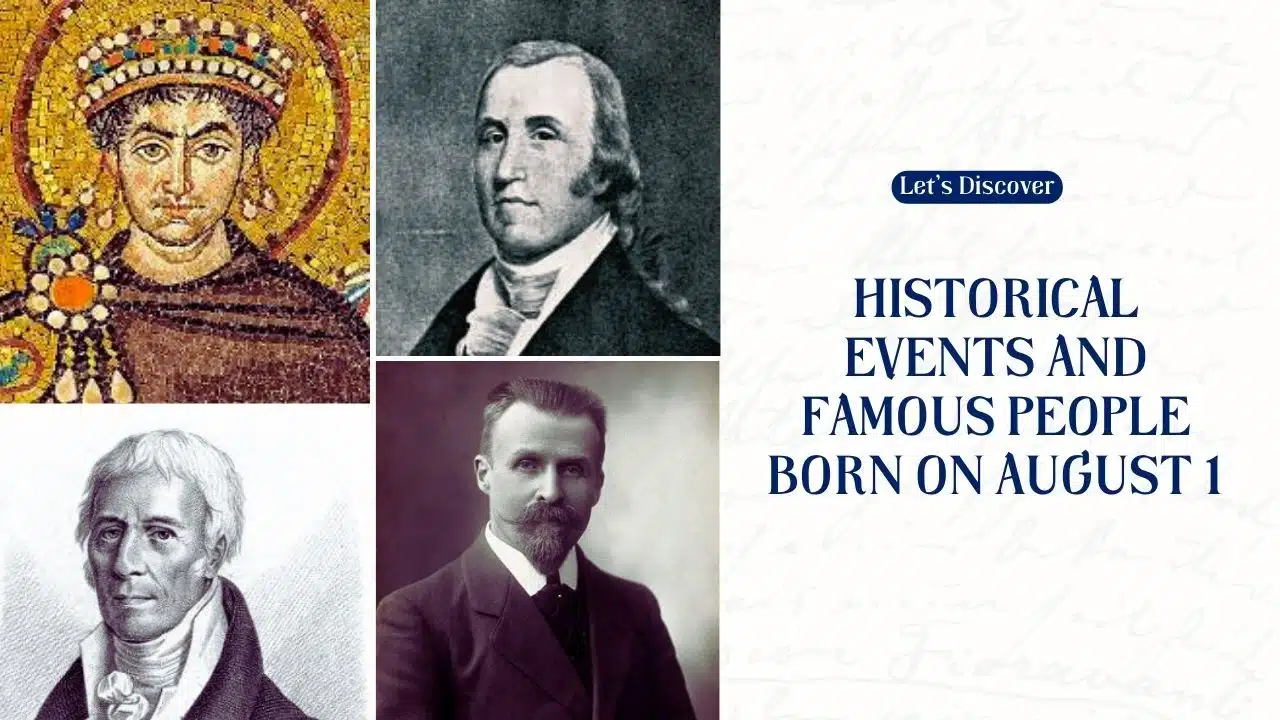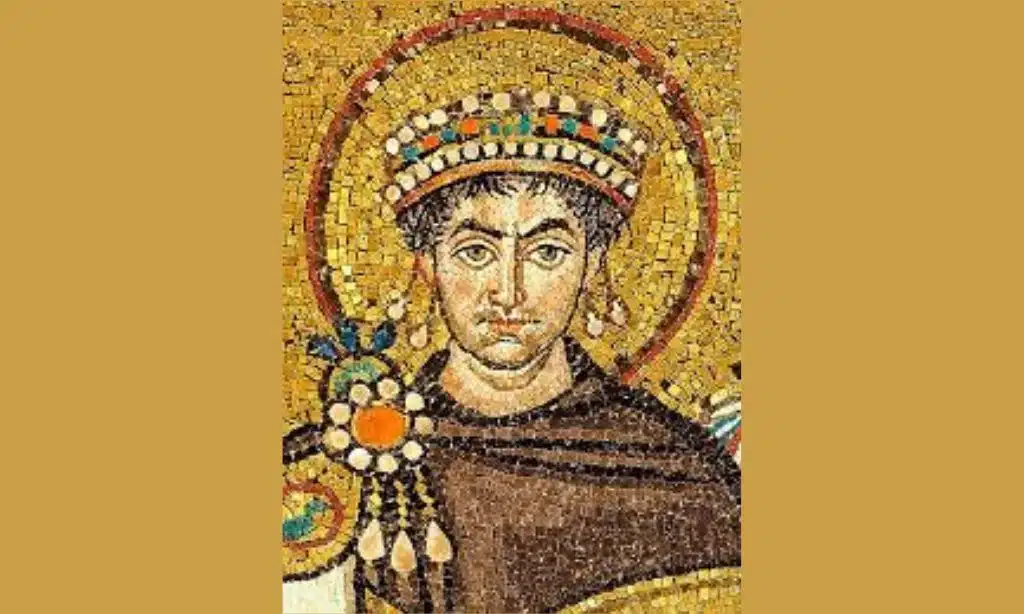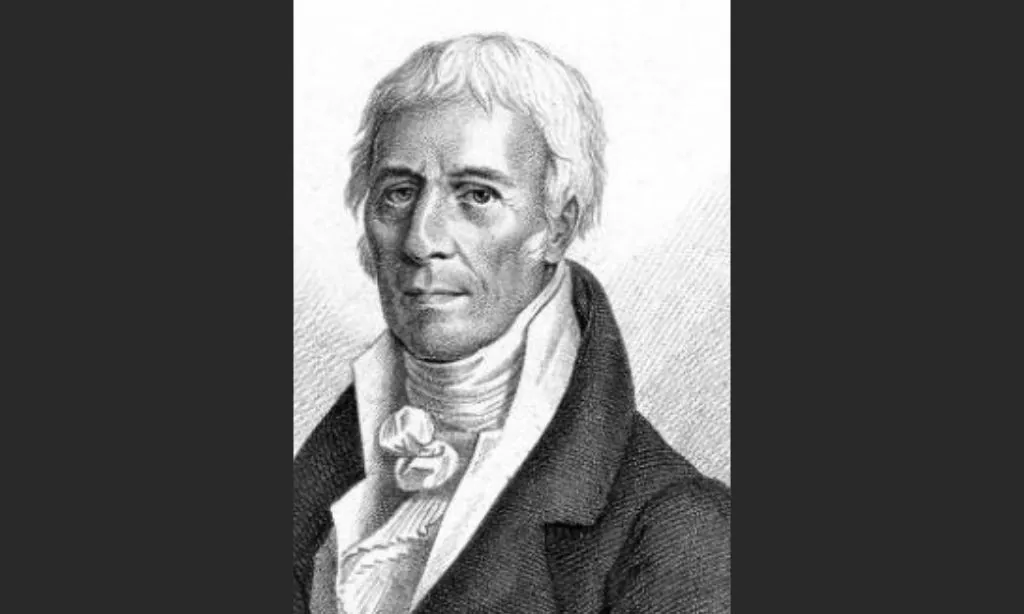August 1 is a special day in history. Many important things happened on this date over the years. Also, some very famous people were born on August 1. In this article, we’ll learn about big events that took place on August 1 and some important people who share this birthday. We’ll see how these events and people changed the world in different ways.
Historical Events on August 1
A. Octavian Enters Alexandria (30 BC)
Long ago, on August 1, 30 BC, a man named Octavian entered the city of Alexandria in Egypt. This was a big deal because it meant Rome now controlled Egypt.
Before this, Egypt was ruled by Cleopatra and Mark Antony. They fought against Octavian, but they lost. When Octavian came into Alexandria, it was the end of Egypt being its own country. It became part of the Roman Republic.
This change was important for both Rome and Egypt. Rome got a lot of wealth from Egypt, especially its grain. Egypt helped feed the people of Rome. For Egypt, being part of Rome meant big changes in how the country was run.
Octavian later became known as Augustus, the first Roman Emperor. His takeover of Egypt helped him become more powerful. This day marked the start of Roman Egypt, which lasted for hundreds of years.
B. Justinian I Becomes Sole Ruler (527 AD)
Many years later, on August 1, 527 AD, a man named Justinian I became the only ruler of the Byzantine Empire. The Byzantine Empire was what was left of the Roman Empire in the east.
Justinian became ruler after his uncle, Justin I, died. Justinian had already been helping to rule, but now he was in charge of everything. This was the start of a very important time in Byzantine history.
During his rule, Justinian did many big things:
- He had many new buildings made, including the famous Hagia Sophia church.
- He collected all the Roman laws into one big book called the Justinian Code.
- He tried to take back parts of the old Roman Empire in the west.
Justinian’s time as ruler changed the Byzantine Empire a lot. He is still remembered as one of its most important emperors.
C. Domesday Book Presentation (1086)
On August 1, 1086, a very important book was given to William the Conqueror. This book is called the Domesday Book. It was a big list of all the land and people in England.
William ordered this book to be made after he became king of England. He wanted to know what he owned and how much tax he could collect. The book took about a year to make. It listed all the towns, animals, and people in most of England and parts of Wales.
The Domesday Book is very important for historians. It tells us a lot about life in England almost 1000 years ago. But some people aren’t sure if August 1 is really the right date for when the book was finished. Even so, it’s still remembered as an important day in the book’s history.
D. Robert the Bruce’s Failed Siege of Carlisle Castle (1315)
On August 1, 1315, something didn’t go well for a Scottish king named Robert the Bruce. He was trying to capture Carlisle Castle in England, but he failed.
This happened during a war called the First War of Scottish Independence. Scotland was trying to be free from English control. Robert the Bruce was leading the Scottish side.
Carlisle Castle was an important place because it was near the border between England and Scotland. If Robert could take it, it would help Scotland in the war. But the castle was too strong, and he couldn’t capture it.
Even though Robert lost this battle, he kept fighting. A few years later, Scotland did win its independence from England.
E. Henry Tudor’s Return to England (1485)
On August 1, 1485, a man named Henry Tudor sailed back to England with an army. This was during a time of fighting in England called the Wars of the Roses.
Henry Tudor thought he should be the king of England. He had been living in France for many years. Now he was coming back to fight for the throne.
This return led to a big battle called the Battle of Bosworth Field. Henry won this battle and became King Henry VII. This was the start of the Tudor family ruling England, which lasted for over 100 years.
Famous Birthdays on August 1
A. Claudius (10 BC – 54 AD)
Claudius was born on August 1, 10 BC. He later became a Roman Emperor, even though no one expected him to.
Claudius had some health problems when he was young. His family didn’t think he could be a leader. But when the emperor before him was killed, Claudius became the new emperor.
As emperor, Claudius did many important things:
- He added new lands to the Roman Empire, including Britain.
- He built new roads and aqueducts (big water pipes).
- He changed some laws to make life better for some people in Rome.
Claudius ruled for 13 years until he died in 54 AD. Many books and TV shows have been made about his life.
Here’s a short bio of Claudius:
| Fact | Information |
|---|---|
| Born | August 1, 10 BC |
| Died | October 13, 54 AD |
| Nationality | Roman |
| Known for | Being Roman Emperor |
| Major achievement | Conquest of Britain |
B. Jean-Baptiste Lamarck (1744-1829)
Jean-Baptiste Lamarck was born on August 1, 1744. He was a French scientist who studied plants and animals.
Lamarck is famous for his ideas about how animals change over time. He thought that animals could pass on traits they got during their lives to their children. For example, he thought if a giraffe stretched its neck to reach leaves, its babies would have longer necks.
We now know this idea isn’t right, but it was important in the history of science. Lamarck’s work helped other scientists think about how animals might change over time. This led to better theories about evolution.
Here’s a short bio of Lamarck:
| Fact | Information |
|---|---|
| Born | August 1, 1744 |
| Died | December 18, 1829 |
| Nationality | French |
| Known for | Early ideas about evolution |
| Major work | Philosophie Zoologique |
C. William Clark (1770-1838)
William Clark was born on August 1, 1770. He was an American explorer who is famous for a big trip he took across North America.
Clark and his friend Meriwether Lewis led an expedition from 1804 to 1806. They traveled from the eastern United States all the way to the Pacific Ocean. This trip helped the United States learn about the land it had just bought from France.
After the expedition, Clark had other important jobs. He worked with Native American tribes and was a governor of the Missouri Territory.
Here’s a short bio of William Clark:
| Fact | Information |
|---|---|
| Born | August 1, 1770 |
| Died | September 1, 1838 |
| Nationality | American |
| Known for | Lewis and Clark Expedition |
| Major achievement | Mapping the American West |
D. Herman Melville (1819-1891)
Herman Melville was born on August 1, 1819. He was an American writer who is famous for his book “Moby-Dick.”
Melville worked on ships when he was young. This gave him ideas for his stories. He wrote many books about the sea and sailing.
“Moby-Dick,” his most famous book, is about a whaling ship captain hunting a big white whale. When it was first published, many people didn’t like it. But now it’s seen as one of the best American books ever written.
Here’s a short bio of Herman Melville:
| Fact | Information |
|---|---|
| Born | August 1, 1819 |
| Died | September 28, 1891 |
| Nationality | American |
| Known for | Writing “Moby-Dick” |
| Major works | “Moby-Dick,” “Billy Budd” |
E. Louis Lapicque (1866-1952)
Louis Lapicque was born on August 1, 1866. He was a French scientist who studied how the brain and nerves work.
Lapicque is known for creating a way to understand how nerve cells send messages. His idea is called the “integrate-and-fire model.” This helped other scientists learn more about how the brain works.
Even though some of his ideas have been replaced by newer ones, Lapicque’s work was very important for the study of the brain and nerves.
Here’s a short bio of Louis Lapicque:
| Fact | Information |
|---|---|
| Born | August 1, 1866 |
| Died | December 6, 1952 |
| Nationality | French |
| Known for | Studies of nerve cells |
| Major contribution | Integrate-and-fire model |
Connections and Reflections
When we look at the events and people of August 1, we can see some interesting connections. Many of these events and people changed the world in big ways.
For example, Octavian’s conquest of Egypt and Justinian’s rule of the Byzantine Empire both involved powerful leaders changing big parts of the world. The Domesday Book and the Lewis and Clark Expedition were both about exploring and recording information about lands.
The people born on August 1 worked in many different fields. We have rulers like Claudius, explorers like William Clark, writers like Herman Melville, and scientists like Lamarck and Lapicque. Each of them made important contributions to their areas of work.
Both the events and the people we’ve learned about had lasting effects on history. From changing the political map of the ancient world to shaping our understanding of biology and literature, August 1 has been a day of significant beginnings.
Takeaway
August 1 has been an important day throughout history. Big changes in governments, important books, and failed battles all happened on this day. It’s also the birthday of people who changed the world through science, exploration, and writing.
Learning about these events and people helps us understand how the world has changed over time. It shows us that important things can happen on any day, and that people born on the same day can do very different but equally important things.
References:
- Dio, Cassius. “Roman History.” Loeb Classical Library, Harvard University Press, 1917.
- Browning, Robert. “Justinian and Theodora.” Thames and Hudson, 1971.
- Darby, H.C. “Domesday England.” Cambridge University Press, 1977.
- Barrow, G.W.S. “Robert Bruce and the Community of the Realm of Scotland.” Edinburgh University Press, 1988.
- Penn, Thomas. “Winter King: Henry VII and the Dawn of Tudor England.” Simon & Schuster, 2011.
- Levine, Joseph M. “The Battle of the Books: History and Literature in the Augustan Age.” Cornell University Press, 1991.
- Corsi, Pietro. “The Age of Lamarck: Evolutionary Theories in France, 1790-1830.” University of California Press, 1988.
- Ambrose, Stephen E. “Undaunted Courage: Meriwether Lewis, Thomas Jefferson, and the Opening of the American West.” Simon & Schuster, 1996.
- Delbanco, Andrew. “Melville: His World and Work.” Knopf, 2005.
- Brunel, Pierre and Cédric Villani. “Toute la physique (ou presque) en 15 équations.” Flammarion, 2017.







































